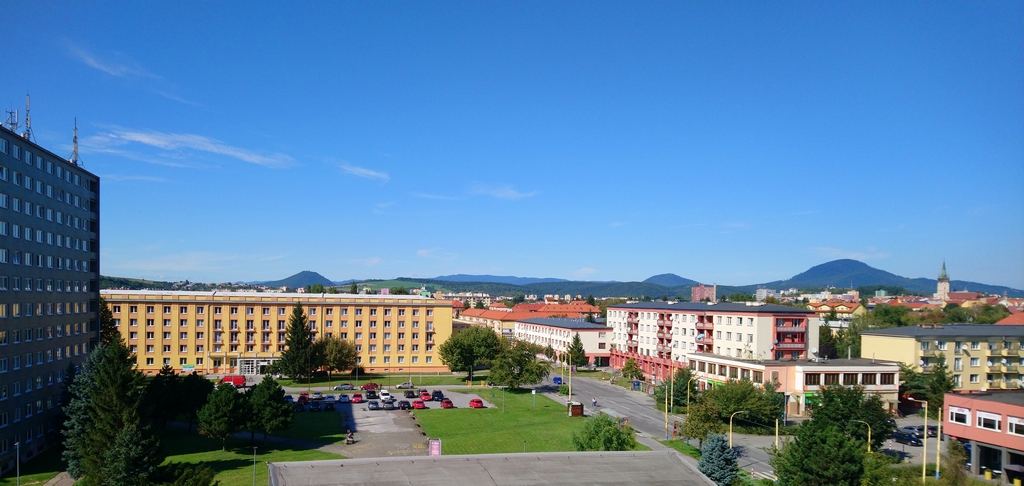About Faculty of Arts

The Faculty of Arts of Prešov University was founded half a century ago, following the transformation of the Philological Faculty of the University of Education in Bratislava, originally located in Košice, later moving to Prešov, and is the second oldest Faculty of Arts in Slovakia. It formed the core of the Pavol Jozef Šafárik University in Košice in 1959, in association with the Faculty of Medicine in Košice. The Faculty of Arts remained a part of the Pavol Jozef Šafárik University until 1 January 1997, when the Prešov based faculties of the Pavol Jozef Šafárik University in Košice founded the University of Prešov in Prešov.
The faculty, despite its regional character, has established itself as a successful and developing body of research and teacher training activities and as a significant part of the Slovak and international community of humanities education. In the fifty years of its existence, the faculty has prepared generations of specialists, teachers, renowned scientists as well as social workers. Many of them now work as top specialists in positions of importance both at home and abroad.
Study
The Faculty of Arts provides university education in both academic and vocational fields in various combinations in addition to providing both full time and part time study programmes in non-teacher training areas aimed at disciplines of humanities. It enhances the range of accredited study fields and programmes each year, many of them being unique a national basis. The faculty provides university education to three levels: bachelors, masters and doctors. It can also bestow the degree of PhD. following the successful completion of examina rigorosa in various fields and the undertaking of habilitations and professors appointments procedures. The faculty has created possibilities for inter-field study. The general public is offered various forms of education, for example the extended study for university graduates, supplementary teachers training and various other specified courses, such as courses for interpreters and translators, which include professional qualification certification.
Instruction of students is carried out by the university teaching staff working at various scientific-pedagogic centres of the faculty, institutes and departments:
- Institute of Aesthetics and Art Culture
- Institute of British and American Studies
- Institute of Central European Studies
- Institute of Educology and Social Work
- Institute of Philosophy and Ethics
- Institute of German and Romance Studies
- Institute of History
- Institute of Music and Arts
- Institute of Political Science
- Institute of Psychology
- Institute of Russian Studies
- Institute of Slovak Studies and Media Studies
- Institute of Translation and Interpreting Studies
- Institute of Ukrainian Studies
Study preconditions and extra-curricular activities
The Faculty of Arts is located in the centre of Slovakia’s third largest town. The campus is in pleasant surroundings, which house both the students’ dormitories and canteen, healthcare facilities, the Students’ Service and Information Centre, shops and numerous sport facilities including gyms, swimming pools and ice rinks. The faculty building contains a well equipped university library, the seminar libraries for the particular departments, and also the interpreting facilities for the students of Translation and Interpreting. Students have access to a number of PC rooms, wireless Internet connection, the copying services, cafeteria, ATM, etc.
Students of the faculty can meet various home and foreign guests from the academic environment as well as from the professional sphere. The variety of study programmes concentrated at the faculty, provide the students with the chance to meet colleagues from different study programmes. They can meet at a professional level, for example during student scientific and professional conferences, as well as at various social and cultural events, such as matriculations, department balls, etc… The faculty is home to the Students’ Theatre – a voluntary student’s band, representing the faculty at various shows across the country and also abroad in a number of student creativity competitions. The band, being the laureate of the Slovak University Students Artistic Creativity Competition - Academic Prešov, is well renowned in Germany, Austria, Poland, Slovenia, France, Spain and elsewhere. It is mainly thanks to Academic Prešov, taking place once a year, that the faculty has made its reputation both at home and abroad. The MafiaArt artistic club is also active at the Faculty of Arts, as well as the first Slovak based students’ Internet television Mediálka.
Science and research
Faculty academic staff are involved in projects of both applied and basic research , mainly through various grant projects. Scientific research of the creative members of the staff is carried out on a team-work basis, having a multi-discipline character, with its primary objective being the humanities, mainly literary science, Slovak language, literature and culture, general linguistics and children’s speech, the language and culture of the Slavonic languages (Russian, Ukrainian, and others), the language, literature and culture of non-Slavonic languages (English, German, French, Spanish), the language and culture of classical languages, linguistic and literary contacts, the theory and practice of translation and interpreting, philosophy, ethics, social work, cultural studies, aesthetics, political science, history, psychology, etc. In addition to the particular departments and institutes participating in research, there are also specialized structures, such as the phonetic laboratory within the Institute of Slovak Studies, General Linguistic and Media Studies; the psychological PC laboratory within the Institute of Psychology and others. Scientific monographs, studies and articles published yearly at home and abroad prove the creative potential of our staff members, who present their results at various scientific events both in Slovakia and abroad, as well as at conferences organised by the Faculty of Arts. The results of research activities are implemented in the teaching process, as well as in social practice (working as legal experts, professional consultants, interpreters, translators and others).
External relations
The faculty research and pedagogic centres co-operate with Slovak universities, especially with centres of a similar field of interest. There is a very intense cooperation with various institutes of the Slovak Academy of Sciences and with other research institutes, such as the Research Institute of Children’s Psychology and Pathopsychology, Museum of Education and Pedagogy, Research Institute of Labour, Social Affairs and Family in Bratislava, Museum of Ukrainian-Ruthenian Culture SNM in Svidník. The Faculty of Arts also cooperates with secondary schools and with various bodies of state administration, civic associations, NGOs, business entities in SR, as well as with the Slovak Television Studio in Košice, Slovak Radio Studio in Košice, Jonáš Záborský Theatre in Prešov, DAD Prešov, National Theatre in Košice, Language School in Prešov, Orphanage SLON Šarišské Michaľany, the centre of social services, the elderly people’s homes, Regional Pedagogic-psychological Counseling Centre of Prešov, Academy of Education, and others. Some of these centres provide our students with opportunities for work and professional experience.
International cooperation
The Faculty of Arts has developed various forms of international pedagogic and scientific cooperation with a number of renowned partners, not only in the neighbouring countries, but also with famous universities in Europe and on other continents. To name but a few – the Masaryk University in Brno, Charles’ University in Prague, South-Bohemian University in České Budějovice, Palacký University in Olomouc, Loránd Eotvos University in Budapest, P. Pázmany Catholic University in Piliscsaba, Szeged University in Szeged, F. Schiller University in Jena, E. Karls University in Tubingen, K. Franzens University in Graz, Blais Pascal University in Clermont-Ferrand, Paris-Est Marne-la-Vallée University in Paris, University in Poitiers, North-French University in Arras, University in Alcal, University in Zaragoza, University of Bolton (United Kingdom), University in Oulu (Finland), Dalarna University (Sweden), Linkoping University (Sweden), Ankara University in Ankara (Turkey), University in Sakaryi, universities in Poland, Bulgaria, Russian Federation, Byelorussia and Ukraine (Uzhgorod National University, M. Drahomanov National Pedagogical University in Kyiv, Lviv State Ivan Franko University).
Faculty bodies and individuals participate in various international projects and grants within the framework of international programmes. F aculty staff are awarded individual foreign grants; they publish abroad, give presentations at international scientific conferences and at professional seminars in the Czech Republic, Poland, Hungary, Russia, Ukraine, Belarus, Bulgaria, as well as in Belgium, Spain, Switzerland, Sweden, France, Germany, Norway, Austria, Greece, India, Canada, China, Turkey and elsewhere, not to mention other events thanks to invitations from Slovak embassies and other foreign bodies. Many faculty staff are members of a variety of international organisations, professional boards abroad and editorial boards of foreign periodicals.
Based on bilateral agreements with partner institutions and within the framework of diverse international programmes, the faculty carries out study stays for instructors and students abroad. The number of students sent for a period of one semester to foreign universities every year is continually increasing, as is the number of foreign students coming for short-term and long-term stays to the faculty.
A number of foreign guest lecturers stay and work at the faculty. They come from various countries, such as Bulgaria, France, Hungary, Germany, Poland, Austria, Spain, Ukraine, the USA and the United Kingdom.
The faculty keeps strong contacts with institutions active in the field of international cooperation, such as the Slovak Academic Association for International Cooperation, SAIA, Fulbright Commission, Civic Education Project, Open Society Fund, Jan Hus Education Foundation, the British Council, DAAD, USIS. The faculty also cooperates with a number of foreign embassies and foreign cultural institutions, such as the French Institute of the French Embassy, French Alliance, Association of Jan Hus-France, Pro Helvetia and others.

